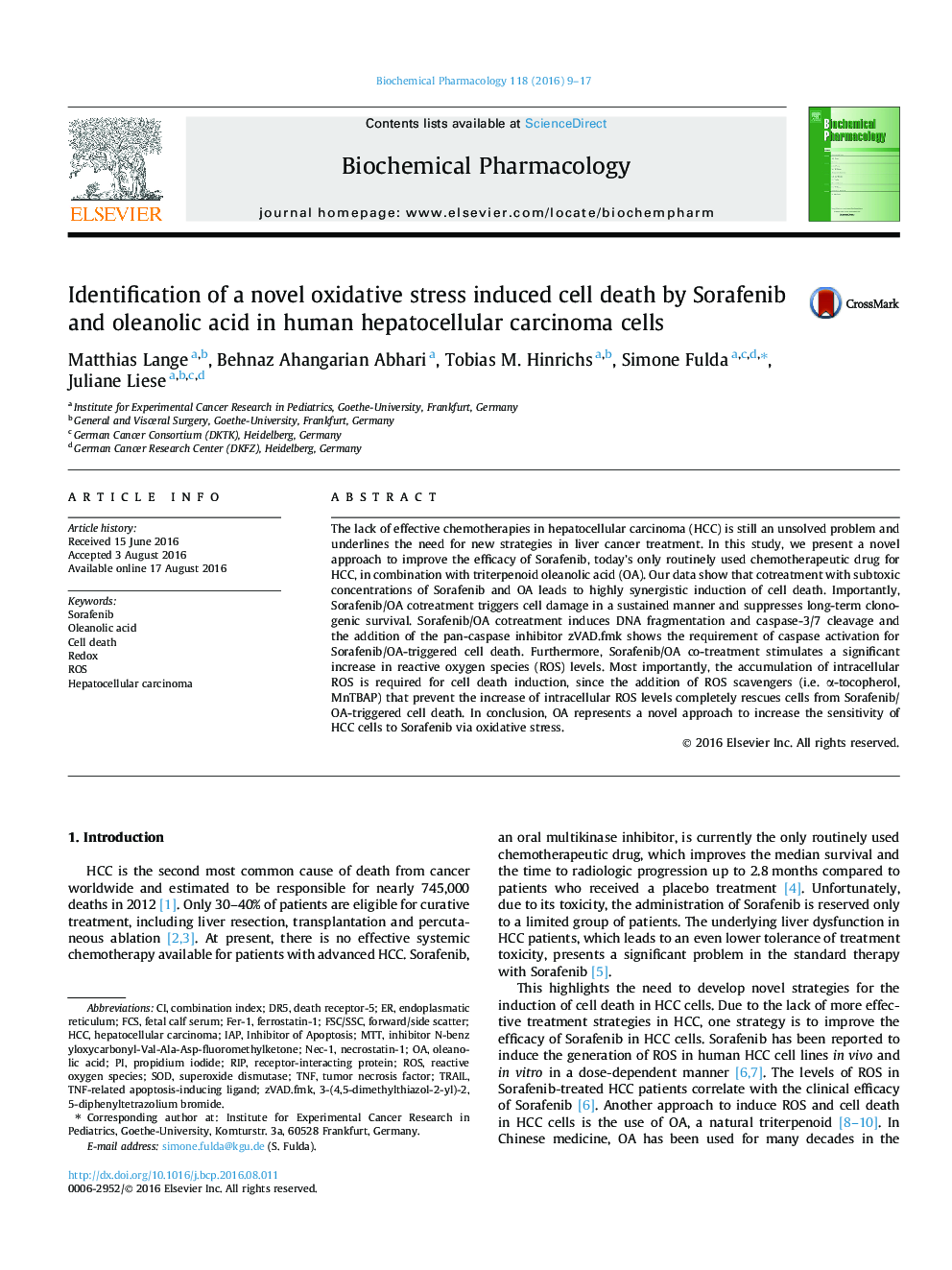| کد مقاله | کد نشریه | سال انتشار | مقاله انگلیسی | نسخه تمام متن |
|---|---|---|---|---|
| 5552412 | 1557895 | 2016 | 9 صفحه PDF | دانلود رایگان |

The lack of effective chemotherapies in hepatocellular carcinoma (HCC) is still an unsolved problem and underlines the need for new strategies in liver cancer treatment. In this study, we present a novel approach to improve the efficacy of Sorafenib, today's only routinely used chemotherapeutic drug for HCC, in combination with triterpenoid oleanolic acid (OA). Our data show that cotreatment with subtoxic concentrations of Sorafenib and OA leads to highly synergistic induction of cell death. Importantly, Sorafenib/OA cotreatment triggers cell damage in a sustained manner and suppresses long-term clonogenic survival. Sorafenib/OA cotreatment induces DNA fragmentation and caspase-3/7 cleavage and the addition of the pan-caspase inhibitor zVAD.fmk shows the requirement of caspase activation for Sorafenib/OA-triggered cell death. Furthermore, Sorafenib/OA co-treatment stimulates a significant increase in reactive oxygen species (ROS) levels. Most importantly, the accumulation of intracellular ROS is required for cell death induction, since the addition of ROS scavengers (i.e. α-tocopherol, MnTBAP) that prevent the increase of intracellular ROS levels completely rescues cells from Sorafenib/OA-triggered cell death. In conclusion, OA represents a novel approach to increase the sensitivity of HCC cells to Sorafenib via oxidative stress.
Journal: Biochemical Pharmacology - Volume 118, 15 October 2016, Pages 9-17